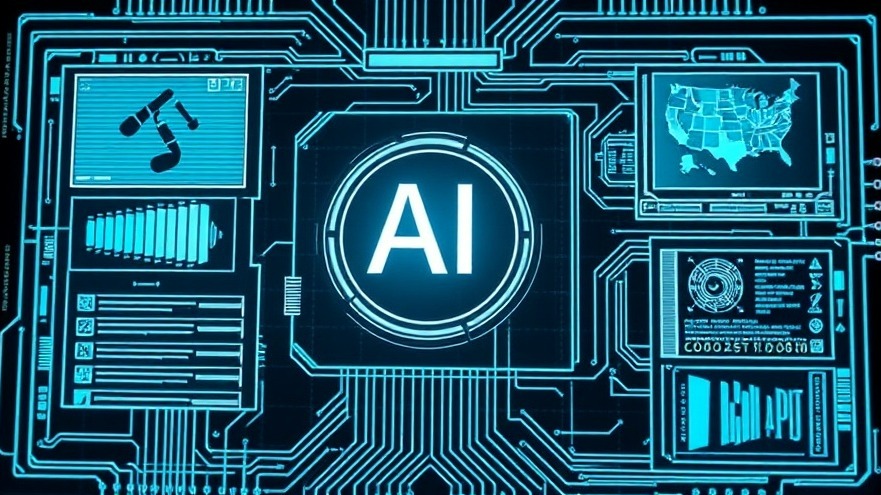
The Rise of Autonomous AI Agents in Healthcare
In recent years, the integration of artificial intelligence (AI) into healthcare has seen an unparalleled surge. Autonomous AI agents, capable of managing intricate clinical workflows independently, are beginning to take the center stage. These systems utilize large language models (LLMs) and generative AI technologies, showing promise in transforming patient care through improved efficiencies and outcomes.
The Regulatory Landscape: A Mismatch?
Despite the potential benefits, a study from the Else Kröner Fresenius Center (EKFZ) at TUD Dresden University of Technology reveals a troubling mismatch between the rapid advancement of AI capabilities and current regulatory frameworks in the U.S. and Europe. As these autonomous AI agents start to perform tasks traditionally managed by human practitioners, they challenge existing regulations, which were designed for simpler, static technologies. Traditional laws governing medical devices focus on systems that rely heavily on human oversight, often rendering these rules incompatible with the dynamic, self-learning nature of autonomous AI.
Why the Shift Matters
Jakob N. Kather, a prominent figure in Clinical Artificial Intelligence, expresses concerns that the evolving capabilities of AI agents could outpace regulatory approaches, leading to significant safety and accountability issues. Currently, regulations favor technologies that perform narrowly defined tasks, yet these new autonomous agents can execute complex workflows with little to no human intervention. The need for revised regulations is not just about keeping pace; it’s about ensuring patient safety while facilitating innovation.
Proposals for Innovative Regulations
The authors of the EKFZ study propose several innovative regulatory approaches that aim to bridge this gap. They emphasize the importance of creating a framework that acknowledges the unique characteristics of autonomous AI technologies. Suggestions include adaptive regulations that can evolve alongside technology, as well as increased collaboration between AI developers, clinicians, and regulatory bodies. This collaborative approach could help to create a more flexible regulatory environment that promotes innovation while ensuring patient safety and care standards.
Future Predictions: Navigating New Possibilities
Looking ahead, the evolution of autonomous AI agents appears inevitable. With significant implications for clinical practice, healthcare professionals must stay informed and be adaptable to these changes. The incorporation of AI into medical practice promises not only to improve the efficiency of healthcare delivery but also to enhance patient outcomes significantly.
Common Misconceptions About AI in Medicine
One prevalent misconception is that AI will replace human practitioners. In reality, these technologies are designed to augment human capabilities. Autonomous AI agents can handle routine tasks such as data management and analysis, allowing healthcare professionals to focus on more complex and human-centric aspects of care. This partnership between AI and healthcare providers can lead to a higher quality of care and more personalized treatment plans.
Tools and Techniques for Integration
To prepare for the integration of autonomous AI into their practices, health care providers can start by familiarizing themselves with the technologies available. Engaging in continuous training and education about AI's capabilities will better position practitioners to leverage these tools effectively. Furthermore, practitioners should advocate for regulatory changes that promote safety without stifering innovation.
Concluding Thoughts: A Call for Engagement
As healthcare practitioners, staying ahead of technological advancements is essential not only for professional growth but also for the betterment of patient care. The transition towards autonomous AI agents represents both a challenge and an opportunity. Engage with these changes, advocate for adaptive regulatory measures, and consider how these innovations can enhance your practice. It's time to be proactive in shaping the future of healthcare.
 Add Row
Add Row  Add
Add 




Write A Comment